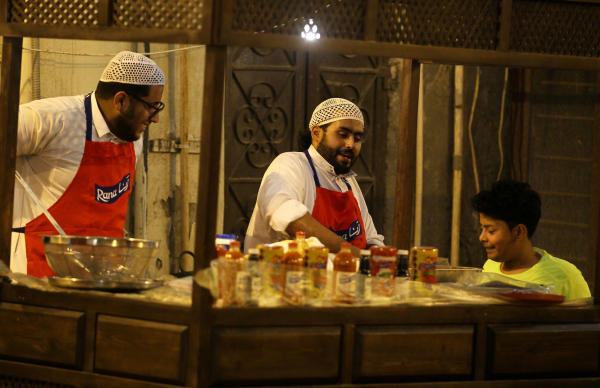The residents of the ancient city of Jeddah celebrate the heritage of their unique city by putting on a festival during the nights of Ramadan and this has taken place for the last three years. The festival, which is called “Our Ramadan Used to be Like This”, is held in the historic part of the city that was given UNESCO world heritage site status. Memories and customs of the city of Jeddah are revived at the festival. Traditional crafts, meals and fashions, distinctive games and music feature at the festival.
This period truly revives the beautiful, impressive and distinctive past of Jeddah that gave it its distinctive characteristics and that turned it into a great melting pot of cultures and civilisations. This melting pot made it a place where people from all corners of the earth are welcomed.
All this diversity has led to the formation of a culture specific to Jeddah which reflects the way that its residents speak and its literary legacy. There were “chieftains” for each profession and these chieftains were experts in their fields. The well-known families who lived within the walls of Jeddah set the standard for moral and ethical behaviour, differences and the interests of Jeddah and its people over the years.
There was the mayor’s bench where people would go if they needed something or wanted to resolve an issue. There were also councils for high ranking notables where they would socialise and conduct charity work.
All of this inspired dozens of historians and writers to write about and praise Jeddah and its people, describing it as a beacon of civilisation, and its people as a unique and rare model of coexistence, tolerance and acceptance of others.
Those who wrote about Jeddah include the great French writer Victor Hugo, and the famous classical musician Antonio Bernardi who wrote a piano sonata named Jeddah. All this richness, diversity and excellence captivate all who come to Jeddah and leaves a mark in their heart. Many of those who followed the Ramadan television series known as “Harat Al-Shiekh” were surprised because it was promoted to viewers as a historical drama that tells the story of Jeddah’s history. Unfortunately, the drama portrayed the city in a farcical light and does not reflect the city’s history, customs and traditions. It is as though the drama is depicting a city other than Jeddah.
It is clear that the series wanted to exploit the success of the Bab El Hara template that was able to portray Damascus in an attractive way. The problem is that the portrayal was quite far from the reality of Jeddah and its history, which remains in the memories of its people. This was the big mistake. Television dramas should at least be built on a minimum amount of truth and reality, and “Harat Al-Shaikh” failed to do this.
